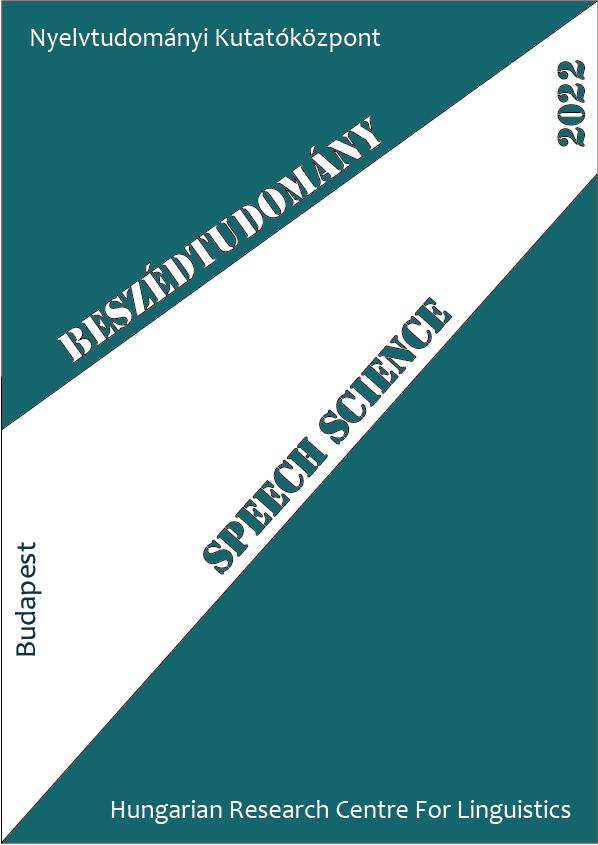magyar
Abstract
As a result of research results exploring the functioning of linguistic abilities, the way of thinking about language has been formed. Recent views are dominated by an approach to a unified architecture of cognitive functions that states that linguistic and cognitive processes are based on common neural networks (Lambon Ralph et al., 2017; Blumstein & Amso, 2013; Kunert et al., 2015; Tóth, 2021; Tóth , 2018a; 2018b). Accordingly, reading disorders are explored through a comprehensive exploration of language, reading, and cognitive processes. Exploring the characteristics of reading disorders associated with adult acquired language disorder, i.e. aphasia as a syndrome, is of paramount importance not only in the diagnostic process but also in the therapeutic process. In our study, we present the first results of our measurement tool developed for the exploration of adult acquired reading disorders. Lexical access plays a central role in reading processes (Perfetti, 1999; Perfetti & Stafura, 2014). In our research, we observed the main components of linguistic and reading abilities of aphasic individuals (n = 19). During data analysis correlation tests were performed. Based on our first results, the tasks measuring lexical access showed a significant correlation with several language and reading components, and we also experienced strong effects according to the internal structure of the tasks. Based on all this, the tests of our reading test measuring lexical access seem to be able to differentiate well among the main characteristics of reading disorders associated with aphasia.




